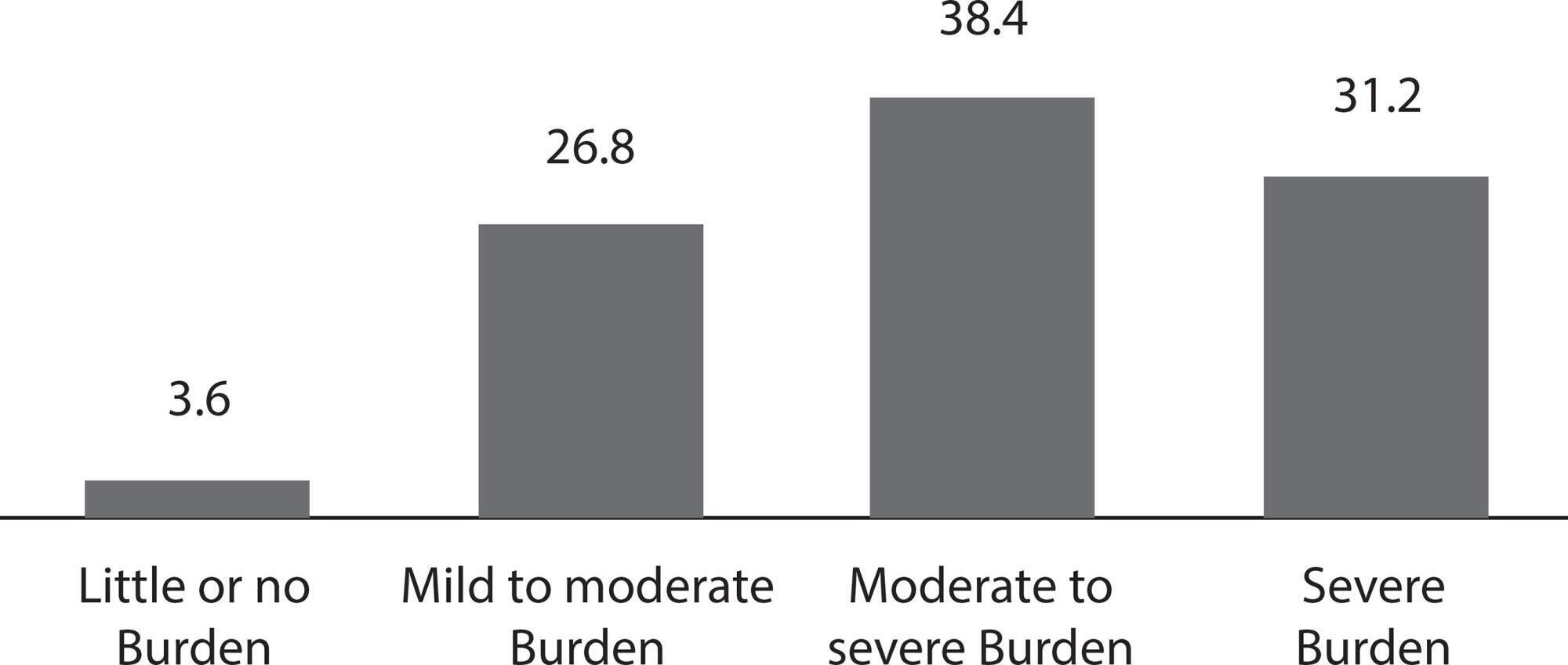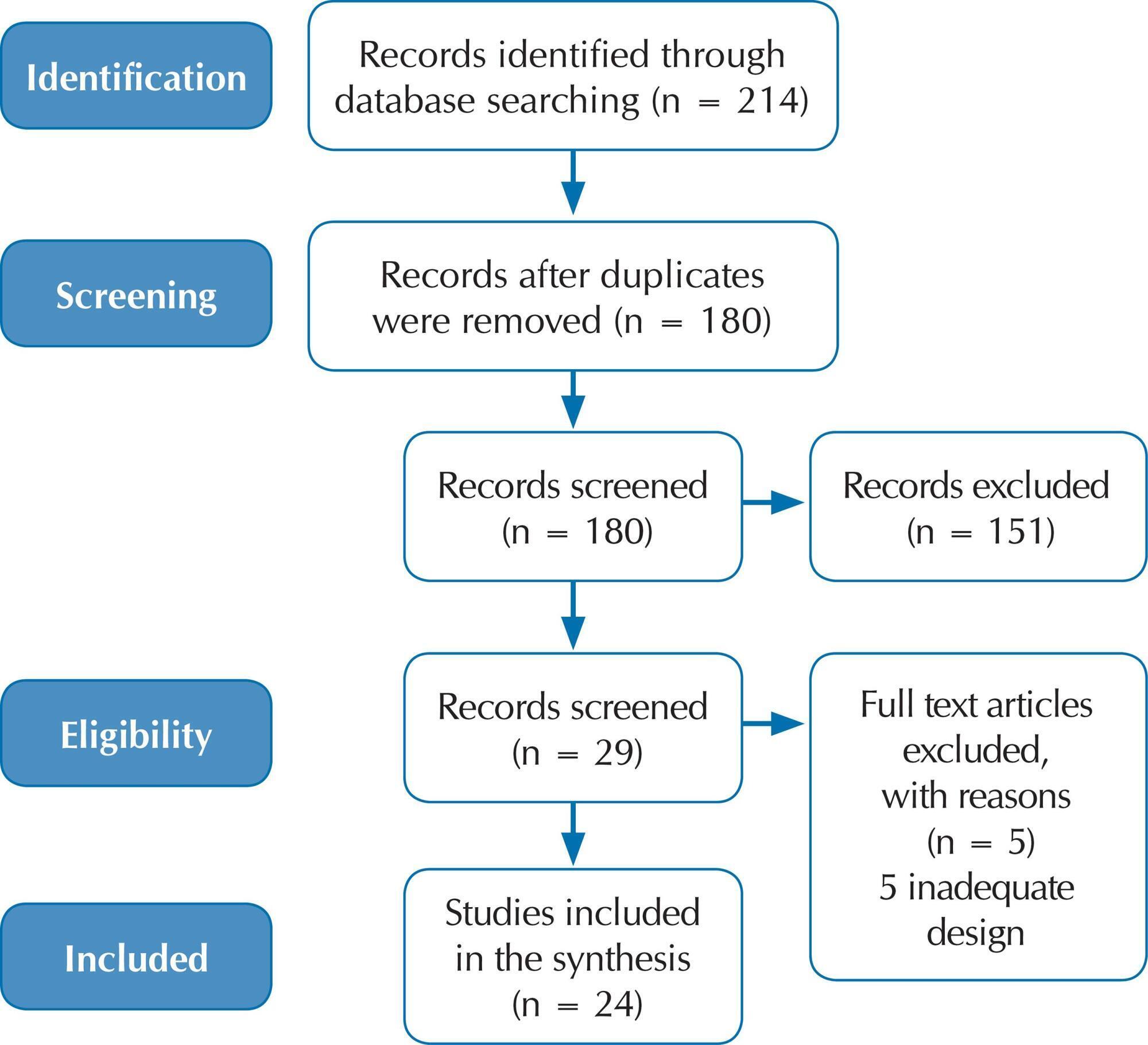-
ORIGINAL ARTICLE10-09-2023
Self-compassion among Undergraduate Nursing Students at a State University in Indonesia during the COVID-19 Pandemic
Revista Brasileira de Enfermagem. 2023;76(4):e20220585
Abstract
ORIGINAL ARTICLESelf-compassion among Undergraduate Nursing Students at a State University in Indonesia during the COVID-19 Pandemic
Revista Brasileira de Enfermagem. 2023;76(4):e20220585
DOI 10.1590/0034-7167-2022-0585
Views0See moreABSTRACT
Objective:
To determine the level of self-compassion and investigate the relationships between sociodemographic variables and self-compassion among undergraduate nursing students at a state university in Indonesia during the COVID-19 Pandemic.
Methods:
This study used a cross-sectional design. Samples were selected using a proportionate stratified random sampling technique (n=260). Data were collected using an Indonesian version of the Self-compassion Scale, which consists of 6 subscales: self-kindness, self-judgment, common humanity, isolation, mindfulness, and overidentification. Data were analyzed using univariate and bivariate analysis.
Results:
60% of students had moderate self-compassion. Students scored the highest in self-kindness (3,93±1,02) and over-identification (3,58±0,94), indicating that they often tried to love themselves when they felt emotional pain and often get carried away when something upsetting happened. Subsequently, a significant correlation was found between age and self-compassion (p<0.05).
Conclusion:
Self-compassion among nursing students should be improved through interventions such as compassion literacy, mindfulness training, and compassion-based experiential techniques.
-
ORIGINAL ARTICLE08-21-2023
Perceptions, maltreatment and religion as predictors of the psycho-emotional impact on nurses during the COVID-19 pandemic
Revista Brasileira de Enfermagem. 2023;76(3):e20220768
Abstract
ORIGINAL ARTICLEPerceptions, maltreatment and religion as predictors of the psycho-emotional impact on nurses during the COVID-19 pandemic
Revista Brasileira de Enfermagem. 2023;76(3):e20220768
DOI 10.1590/0034-7167-2022-0768
Views0See moreABSTRACT
Objectives:
to analyze the relationship between perceptions, abuse and religion with the psycho-emotional impact on nurses during the COVID-19 pandemic.
Methods:
descriptive-analytical cross-sectional study. It took place between 2020 and 2021 and a total of 319 clinical nurses in Peru were interviewed using the DASS-21. Associations were assessed using Spearman’s Rho and multiple regression.
Results:
18.5% had some degree of stress; 50.2%, anxiety and 29.1%, depression. Experience of abuse, self-perception of mental health and religion were predictors of stress, anxiety and depression. The length of work experience predicts stress and anxiety. In addition, self-perception of information and gender were predictors of depression.
Conclusions:
peruvian nurses have high levels of stress, anxiety and depression, and this psycho-emotional impact was associated with perceptions, experiences of abuse and religion.
-
ORIGINAL ARTICLE08-07-2023
Sense of coherence and social support as predictors of mental health during COVID-19 pandemic
Revista Brasileira de Enfermagem. 2023;76:e20220468
Abstract
ORIGINAL ARTICLESense of coherence and social support as predictors of mental health during COVID-19 pandemic
Revista Brasileira de Enfermagem. 2023;76:e20220468
DOI 10.1590/0034-7167-2022-0468
Views0See moreABSTRACT
Objectives:
to verify the role of sense of coherence, sense of national coherence, social support and trust in institutions to predict mental health in Brazilians during the COVID-19 pandemic.
Methods:
a cross-sectional study, carried out from November, 2020 to January, 2021 via an online survey. Standardized instruments were used. The sample consisted of 1,630 Brazilians. Pearson’s correlation and linear regression were performed in data analysis.
Results:
sense of coherence was the only predictor of anxiety [β= -0.61; p<0.001], explaining 38% of the variance in its scores, while sense of coherence [β= 0.52; p<0.001], sense of national coherence [β= 0.16; p<0.001], and social support [β= 0.15; p<0.001] predicted positive mental health and together explained 51% of its variance.
Conclusions:
the findings suggest that sense of coherence, sense of national coherence and social support represent important predictors for mental health and that strengthening these resources, could potentially promote Brazilians’ mental health.
-
ORIGINAL ARTICLE10-21-2019
Caregiver burden and stress in psychiatric hospital admission
Revista Brasileira de Enfermagem. 2019;72(6):1699-1706
Abstract
ORIGINAL ARTICLECaregiver burden and stress in psychiatric hospital admission
Revista Brasileira de Enfermagem. 2019;72(6):1699-1706
DOI 10.1590/0034-7167-2018-0832
Views0See moreABSTRACT
Objective:
to evaluate the relation between sociodemographics factors, stress and burden of care of family caregivers of patients at a psychiatric hospital admission.
Method:
quantitative study, with a cross-sectional correlation design. A total of 112 family caregivers participated, older than 18, in a Brazilian psychiatric hospital. A sociodemographic questionnaire was used to collect data, the Zarit Burden Interview and LIPP Adult Stress Symptom Inventory.
Results:
burden of care in family caregivers at a psychiatric hospital admission was significantly associated with stress (p=0.000). The psychological symptoms of stress predicted severe burden. Most caregivers presented a moderate or severe burden, with 52.7% in the resistance phase of stress; 66.1% presented psychological symptoms.
Conclusion:
results show the alarming situation of caregivers of patients from a psychiatric hospital, evidencing their own vulnerability to illness. Indeed, the during admission in a psychiatric hospital, not only patients need care, but also their caregivers.

-
REVIEW01-01-2018
Spirituality review on mental health and psychiatric nursing
Revista Brasileira de Enfermagem. 2018;71:2323-2333
Abstract
REVIEWSpirituality review on mental health and psychiatric nursing
Revista Brasileira de Enfermagem. 2018;71:2323-2333
DOI 10.1590/0034-7167-2016-0429
Views0See moreABSTRACT
Objective:
Gather the concepts, theories and interventions about spirituality, its nature and functions in mental health and psychiatric nursing.
Method:
A literature review proceeded on February 2016. It has integrated 214 studies published until December 2015 by crossing Spirituality and Psychiatric Nursing mesh terms in databases.
Results:
Conceptualization about spirituality and religion, their complexity in nursing research, education, and clinical approach; their functions to human being correlated to the purpose of life, transcendental connections, and support in mental health; the professional boundaries in address to spirituality in mental health scenery, and a descriptive literature recommendations and a instruments catalog.
Conclusions:
Spirituality in nursing mental health and psychiatry remains a theoretical problem, and has a clinical mischaracterized approach; recently publications try to promote a human and holistic trend in the practice, as a challenge to lead the current circumstances to valid nursing bases.




